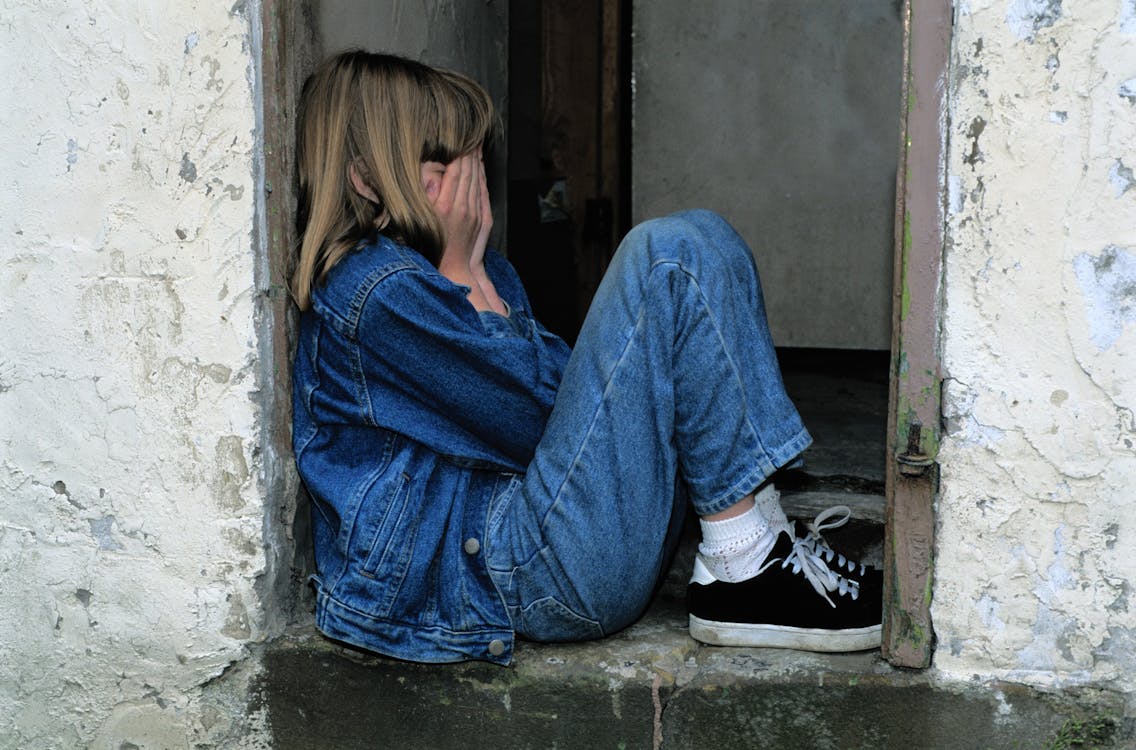10 Emotional Wounds Daughters With Unloving Mothers Carry Into Adulthood

The bond between a mother and daughter is often seen as one of the most powerful and formative connections in life. Ideally, it is a source of love, guidance, and emotional security—a foundation for confidence and resilience. But what happens when that bond is fractured or absent altogether?
For daughters of unloving mothers, the impact can be profound and far-reaching, shaping how they see themselves, relate to others, and navigate the world. These invisible wounds often linger into adulthood, influencing relationships, self-perception, and emotional well-being in ways that aren’t immediately obvious.
While these struggles are deeply personal, they are also universal in their themes of longing, identity, and healing. What are these emotional wounds, and how do they continue to affect daughters long after childhood?
The Role of Maternal Love in Emotional Development
Studies have consistently highlighted the profound impact of maternal love. For instance, research indicates that children who receive consistent and nurturing care from their mothers tend to exhibit higher levels of emotional intelligence, empathy, and social competence.
This nurturing environment enables children to develop trust, self-esteem, and emotional regulation, essential components for healthy relational patterns in later life.
Conversely, the absence of maternal warmth can lead to significant developmental challenges. Harry Harlow’s classic studies with rhesus monkeys demonstrated that infants deprived of maternal contact exhibited emotional and social deficits, underscoring the necessity of maternal affection for healthy psychological development.
In humans, a lack of maternal love has been linked to various emotional wounds that persist into adulthood. As noted in Psychology Today, daughters of unloving mothers may unwittingly replicate the maternal bond in other relationships, often leading to patterns of attachment that hinder personal growth and fulfillment.
The significance of a mother’s love extends beyond immediate emotional comfort; it plays a critical role in shaping a child’s moral and ethical framework. Through the values and principles instilled by a loving mother, a child develops a sense of right and wrong, empathy for others, and a strong moral foundation that guides their actions throughout life.
10 Emotional Wounds Daughters with Unloving Mothers Carry into Adulthood
The relationship between a mother and daughter profoundly influences a woman’s emotional development. When maternal love is absent or conditional, it can lead to enduring emotional wounds that persist into adulthood. Here are ten common emotional scars experienced by daughters of unloving mothers:
- Struggles with Self-Worth and Validation: Daughters who lack maternal recognition often grapple with low self-esteem and a relentless pursuit of external validation. As Susan Forward notes in Mothers Who Can’t Love, “A little girl who was criticized or ignored…becomes an adult who tells herself she’ll never be good enough or lovable enough.”
- Difficulties in Trust and Intimacy: Early betrayals by an unloving mother can result in challenges forming trusting and intimate relationships. These daughters may become wary of closeness, fearing emotional harm. As highlighted in Psychology Today, “The daughter of an unloving mother…learns different lessons about the world and herself.”
- Fear of Vulnerability and Exposure: Experiencing judgment or ridicule from a mother can instill a deep-seated fear of vulnerability, hindering authentic self-expression and openness in relationships. This fear often leads to emotional withdrawal and isolation.
- Challenges in Emotional Awareness and Expression: Without a nurturing environment, daughters may struggle to identify and articulate their emotions, leading to difficulties in emotional regulation and empathy toward others. This emotional disconnect can impede personal and professional relationships.
- Negative Self-Image and Body Dysmorphia: Continuous maternal criticism can foster a negative self-image, contributing to body dysmorphia and mental health issues like depression and anxiety. Studies link parental criticism to the development of body image disturbances.
 Image source: Pexels
Image source: Pexels - Impaired Decision-Making Abilities: A lack of maternal guidance can lead to self-doubt and impaired decision-making, affecting life choices and overall satisfaction. Individuals lacking maternal support often exhibit increased indecisiveness and risk aversion.
- Hostility and Resentment: Unresolved emotional pain from an unloving mother often manifests as anger and resentment, which can be detrimental to mental well-being and perpetuate cycles of conflict in relationships. As Forward states, “Criticism is the fountainhead of control.”
- Inability to Self-Soothe and Cope: Without learning healthy coping mechanisms, daughters may turn to maladaptive behaviors, such as substance abuse, to manage stress and emotional pain. The lack of learned self-soothing techniques can elevate the risk of developing substance abuse disorders.
- Avoidance and Fear of Failure: Experiences of harsh maternal punishment can lead to avoidance behaviors and a heightened fear of failure, hindering personal growth and achievement. This fear often results in unfulfilled potential and reluctance to pursue new opportunities.
- Boundary Issues and Over-Compliance: Growing up without clear boundaries can result in difficulties asserting one’s needs, leading to over-compliance in relationships and a diminished sense of autonomy. This lack of boundaries often makes daughters susceptible to exploitation and emotional exhaustion.
Impact on Adult Relationships
The emotional wounds caused by unloving mothers often leave a lasting impact on their daughters’ adult relationships, shaping how they connect with others. These early experiences can create a template where rejection and emotional unavailability feel familiar, leading daughters to unconsciously seek out partners who mirror these dynamics. This repetition of childhood patterns frequently results in unfulfilling or even toxic relationships. As Peg Streep explains, “Unless and until the daughter recognizes how the patterns of the past animate her responses and reactivity in the present, she will continue to respond in unhealthy ways in almost every relationship she has.”
The lack of maternal affection also hinders trust and intimacy. Many daughters struggle with low self-worth, making it difficult to form healthy connections. Some become overly dependent, seeking the validation they missed in childhood, while others avoid vulnerability altogether, guarding themselves against potential hurt. These coping mechanisms often lead to emotionally shallow or strained relationships, perpetuating feelings of isolation and unworthiness.
Additionally, growing up without clear and respectful boundaries can create challenges in asserting personal needs, leaving daughters prone to over-compliance and imbalance in their relationships. The ongoing stress of these struggles, combined with internalized negative self-perceptions, often exacerbates mental health issues such as anxiety and depression. Healing requires self-awareness and the courage to break free from these deeply ingrained patterns, paving the way for healthier, more fulfilling connections.
Steps Toward Healing
 Image source: Shutterstock
Image source: Shutterstock
Healing from the emotional wounds inflicted by an unloving mother is a deeply personal journey requiring self-awareness, professional support, and a commitment to personal growth. The first step is to acknowledge and validate your feelings. Recognizing that your emotions are valid and deserve attention is essential for personal growth. As Susan Forward writes in Mothers Who Can’t Love, many daughters of unloving mothers long for validation, seeking assurance that their experiences were real and their feelings justified. Accepting these emotions is a crucial part of beginning the healing process.
Seeking professional therapy can further support this journey, offering a safe space to explore your experiences and develop healthier coping strategies. Therapists can guide you through recovery stages, such as those outlined by Peg Streep in Daughter Detox, which include Discovery, Discernment, and Reclaiming. Additionally, setting and maintaining healthy boundaries is vital for emotional well-being. Establishing clear limits protects you from further harm and fosters autonomy, an essential aspect of recovery.
Developing self-compassion is equally important. Engaging in self-care activities like mindfulness, journaling, or hobbies can help reinforce your self-worth and create a foundation for healing. Educating yourself about unloving mothers through books like Mothers Who Can’t Love and Daughter Detox can provide insights and strategies for recovery. Building a supportive network of understanding individuals and challenging negative self-perceptions rooted in childhood experiences can further aid in your healing. Finally, practices like therapeutic writing and forgiveness—focused on personal liberation rather than condoning harmful behavior—can help you process emotions and move forward with strength and clarity.
Rewriting Your Narrative
 Image source: Pexels
Image source: Pexels
The scars left by an unloving mother are undeniably profound, shaping a daughter’s sense of self and her ability to connect with the world. Yet, these wounds do not have to define the rest of her life. Healing is not about erasing the past but about learning to understand it, finding meaning, and cultivating resilience in its aftermath.
By acknowledging the pain, seeking support, and taking proactive steps toward self-compassion, daughters can transform their experiences into a source of strength and empowerment. As they build healthier relationships and reclaim their sense of worth, they rewrite their stories—shifting from narratives of hurt to ones of healing and self-love.
While the journey may be challenging, it is also deeply rewarding. Each step toward self-awareness and growth represents a victory, a testament to the enduring strength of the human spirit. In reclaiming their lives, these women embody the truth that healing is possible, and brighter days await those who are willing to take the first step toward hope and transformation.
Feature image source: Shutterstock
Loading...






